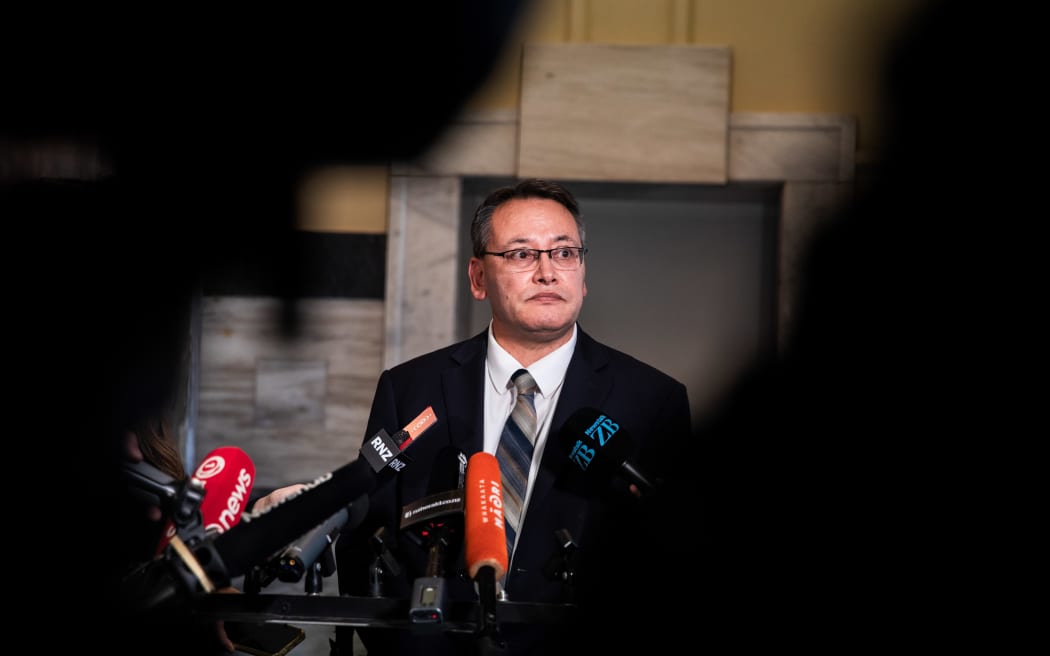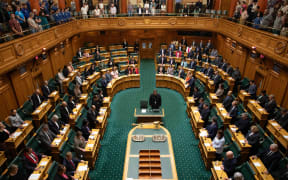
Health Minister Dr Shane Reti. Photo: RNZ / Samuel Rillstone
Health Minister Dr Shane Reti has rejected claims he ignored concern raised by hundreds of doctors over the scrapping of Te Aka Whai Ora - the Māori Health Authority.
A total of 740 doctors signed a letter sent to Reti earlier this month, pleading for more information on what the alternative to the authority would look like.
Dr Rose Harris, one of the signatories, said the minister's response was received just a few days before the bill to dismantle Te Aka Whai Ora was tabled in Parliament.
It was a devastating blow for medical professionals and the response the minister provided did not provide any of the detail requested, Harris said.
"It basically just fobbed us off and it took a long time for us to collaborate on the information in the letter and to gather that many signatures supporting the concerns outlined. We work in this field, so we need a very specific understanding of how this is going to work."
Reti said the response sent to the collective on 21 February was "quite respectful".
He told RNZ he acknowledged their concern, their work and some of the positive gains the Māori Health Authority had made.
"I understand they have that calling and they have called for some of the functions of the Māori Health Authority to be able to contribute to the next approach.
"What I would say to them is under the new system, we will be able to 'power up' parts of what the Māori authority could not do and was not permissioned under, by order to give us better health outcomes."
Harris said there had been too much ambiguity and a serious lack of strategic planning and communication from the government, which had added additional pressure to an already stretched workforce.
"My first concern is a lack of consultation with experts who actually live and breath in this field of work, not only that but the sheer disrespect and lack of consultation with Māori doctors, Māori communities, hapu and iwi who will be severely affected by this bill."
However, the minister said he had already consulted with some iwi and Iwi-Māori Partnership Board (IMPB) chairpeople on what the future might look like, and he planned to engage in '"face-to-face" consultation in the coming weeks.
"I'm hoping over the next few weeks to be able to give some sense around what competency looks like for IMPBs, so that they are ready to receive some of the activities we would like them to undertake.
"Clearly, we've done some work on that already, and we want to engage with them to see where they think they are and where they think they might need to be to pick up some of the functions."
Harris said the removal of Te Aka Whai Ora without a clear plan was essentially stripping away a vital support mechanism which was helping all medical professionals address inequities.
"Any improvement to the way our country support Māori health and wellbeing basically actually supports medical professionals who are also struggling to cope with indigenous health inequities, so that's why this letter has so many non-Māori names too, because they actually get this notion of what's good for Māori is good for everyone."






